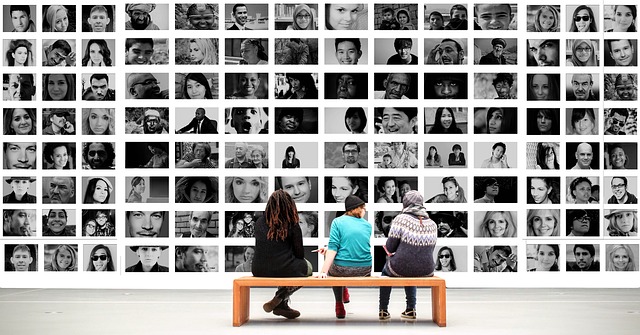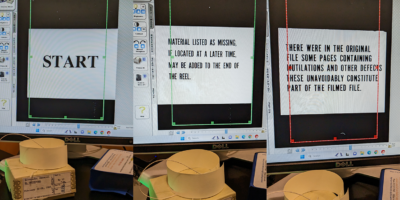By Kaitlin Mondello
It’s my first year editing the TLC’s blog Visible Pedagogy (VP), founded in 2017 by Elizabeth Alsop. In thinking about what directions to take the blog and to build on the work already done, I spent some time reflecting on the key words in our name and our signature series, Reflective Practice. What does it mean to make pedagogy visible? Which pedagogies, whose, and to what end?
When I was looking through the many excellent applications for writers from all different fields, backgrounds, and CUNY colleges, these were the questions I had in mind. I was asking people to write for Reflective Practice, which are two related steps in teaching that we often don’t have time for when we are teaching so much on top of other work and our lives. It is only through taking the time to reflect that we can conceive of our teaching as a practice—something that we are intentional about.
The longer I’ve taught the more I have come to realize, reflect upon, and evaluate the underlying ideologies and values that make up my teaching practice. Until I had to articulate my teaching philosophy for the job market, I hadn’t truly surveyed all of my methods and evaluated them cohesively. I was just trying things—either in response to what had, or hadn’t, worked for me as a student, and experimenting in real time based on my students’ own needs, struggles, and successes. This kind of experimentation is essential to teaching: a willingness to try new things and to meet students where they are. In my teaching, however, everything always felt like it was happening too fast for me to assess my praxis or philosophy in an overarching way—one that requires some level of distance and perspective. I wanted the Reflective Practice series to build in this step for graduate students potentially earlier in their career paths and to offer these reflections to a broader community. We pay our writers to do this kind of work because one of the core principles at the TLC, across our programming, is that thinking and writing about teaching is labor, and therefore deserves compensation.
In a recent TLC workshop, we were discussing what we ask our students to call us. Perhaps contrary to expectations, sometimes the more comfortable the instructor was with their identity and authority, the more likely they were to go by their first name rather than “professor.” This reflects the ways in which “authority” remains a complicated role for underrepresented groups to navigate in the classroom since it less likely to be granted to them automatically. At the same time, many of us from those very groups in particular want to resist an authoritarian model altogether. In this vein, I’ve been thinking a lot about the term, “professor,” in part because my first exposure to its meaning came not in academia, but in my childhood religious upbringing where you “profess” your faith, and next in literature where people “profess” their love (thank you Shakespeare).
In academia, I’ve been resisting the title “professor” because it seems to me to imply that I am doing all the talking. Further, it’s often used to reassert hierarchies (teacher vs. lecturer vs. instructor, etc.). But the VP blog may be a useful space for reclaiming some definitions of the verb “profess” given that is the same root as in profession, another term we hear frequently in academia. The Oxford English Dictionary offers numerous definitions for the verb as it has developed meaning over time, including “To declare, affirm, avow (something); to acknowledge (someone)” and “To declare, affirm, acknowledge, or confess oneself to be something.” I like the ways these definitions open up questions about how we can profess pedagogy, so that the questions echo my earlier ones about visible pedagogy: what do we avow, who do we acknowledge, and what do we declare ourselves to be?
Each of the writers for VP claimed their identities with a strong personal voice. They were unabashedly personal in a way that academia has tried, for a long time, to train out of us (“don’t use ‘I’,” resulting in the ambiguous ‘we’). They were not only trying to make their pedagogy visible, but themselves as well. They were not just writing about themselves as pedagogues, but about their lives, their bodies, their feelings. As people often pushed to the margins, their assertions of the self, this kind of visibility, is something that takes great personal, intellectual, and emotional labor, as well as risk. If the personal is political, then it is also pedagogical.
These moves come in part out of the theory in which our writers are deeply engaged: feminism, critical race theory, queer studies, disability studies, etc. Blogs are often thought of as personal spaces, separate from our professional identities, but there is a value for us as instructors (and potentially for our students) in writing for a more public audience about what we do as educators. This is different kind of writing than we are usually trained to do in the academy, but one that can have a broad and significant impact.
The pedagogies featured on VP, and that we aim to foster and develop at the TLC, are interventions in a broken system of education that increasingly devalues both teaching and learning through adjunctification. In our pedagogies, we are trying to make space for ourselves and others to be human, to be humane, in a system that is often inhuman(e) and which often fails to recognize us as people, let alone as individuals. As contingent laborers, we are so easily replaceable. Over and over again in the posts I saw how critical we are of ourselves as teachers and scholars, always feeling like we cannot be human in the university; that to succeed in academia requires superhuman strengths and abilities. What if we have minds, bodies, or feelings that do not conform to the ideal?
I was struck by how similar our own issues are to our students’ because we are subject to the same detrimental model of education that demands and punishes. We are their instructors, often the people they turn to the most, but we too are struggling with asking for extensions, with missing deadlines, with needing help. This precarity often extends beyond graduate school to adjunct work and short-term contracts, even after the completion of the doctorate. Much of the work we do in our classrooms and at the TLC is an attempt to mitigate the effects of this detrimental model of education on our students and ourselves.
A recent post by Andréa Stella made me think more deeply about what we are professing to our students about our pedagogy in our syllabi, from which students often take their first impressions of a course and instructor. I am guilty of over-performing authority and strictness on my syllabus out of insecurity with being taken seriously or granted authority as part of my constant struggle with being labeled “too nice” as a woman who is friendly. But what message does it communicate to students for me to be one way in class and in person with them, and another way on my syllabus? Much of the language on my syllabus I inherited from others when I was a new teacher and I didn’t stop to reflect enough on my own practice along the way. The syllabus is at least one place where we can begin this kind of reflective practice. What kind of language are we using when we profess to our students in this way? What space can we make for them, their voices and their needs?










Leave a Reply